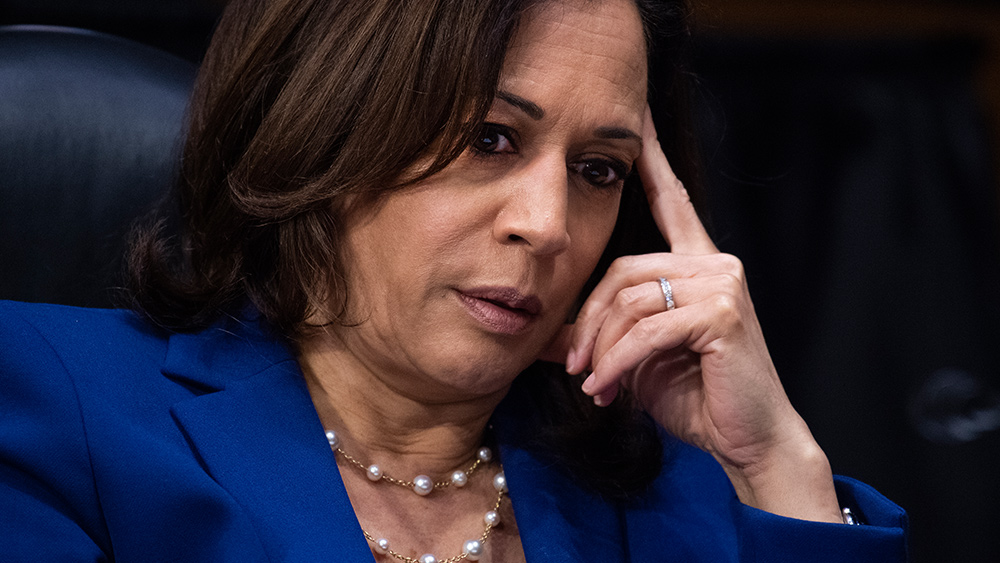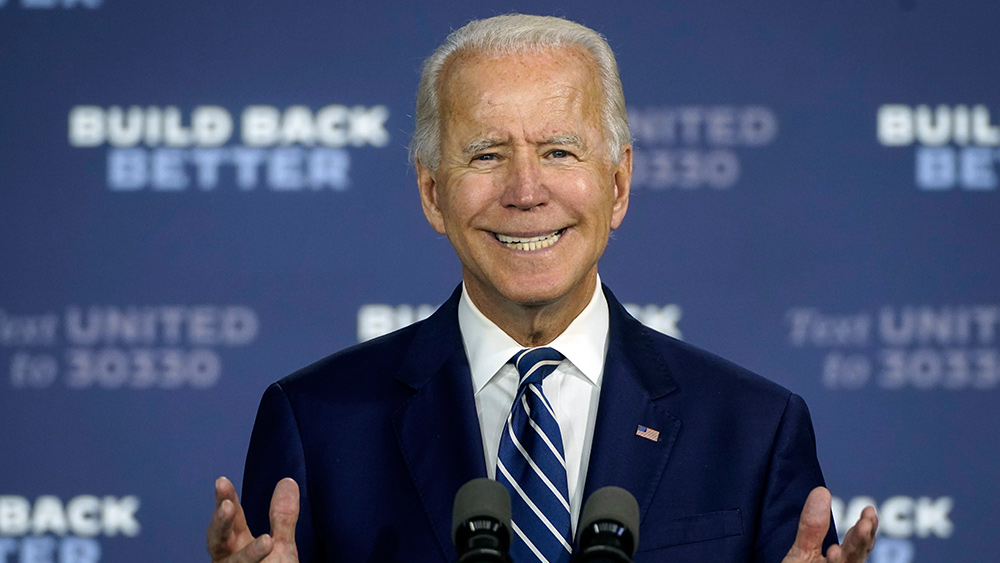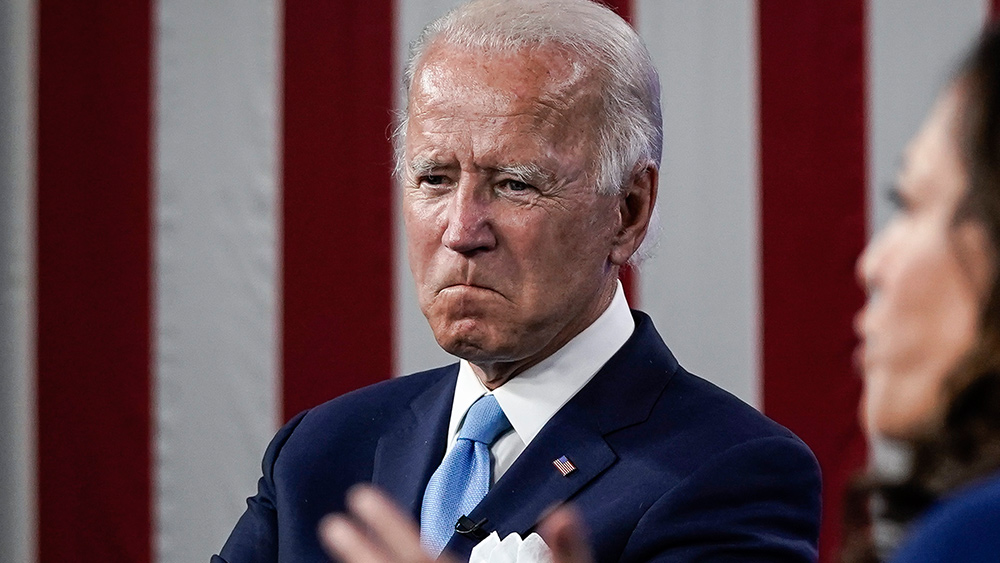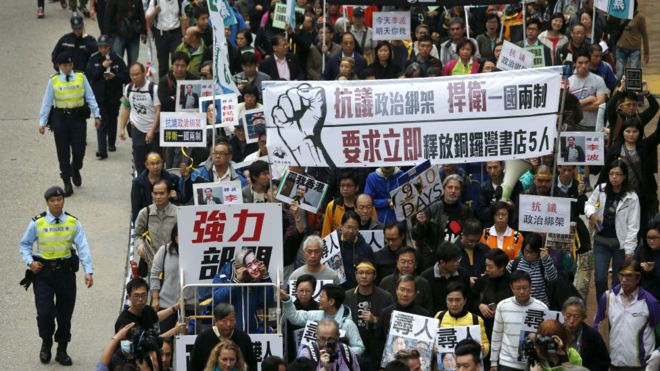US customs officers seize 13-ton shipment of Chinese beauty products made using Uighur prison labor
10/15/2020 / By Ramon Tomey
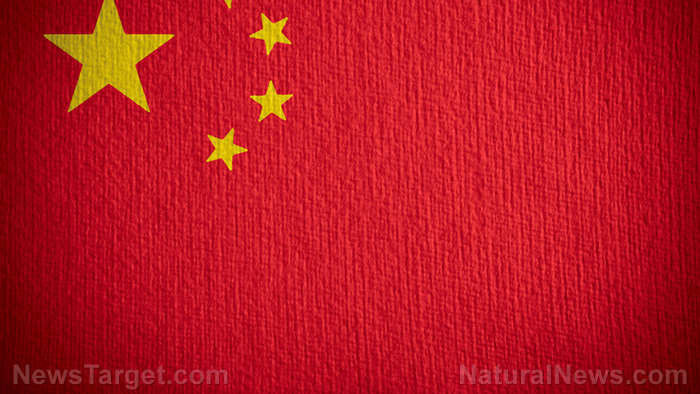
United States Customs and Border Protection (CBP) officers seized a 13-ton shipment of beauty products from China, amounting to $800,000 in July. The shipment, which included wigs made of human hair suspected to be taken from prisoners, originated from the Xinjiang Uighur Autonomous Region in northwestern China. CBP officers seized the shipment compliant with a June detention order for Lop County Meixin Hair Product Co. Ltd., the manufacturer of the beauty products.
According to information received by the CBP Office of Trade, the company used prison labor to manufacture its products. Section 1307 of the Tariff Act of 1930 explicitly forbids importing all products “mined, produced, or manufactured wholly or in part in any foreign country by convict labor, forced labor, or indentured labor.”
CBP Office of Trade Executive Assistant Commissioner Brenda Smith said: “It is absolutely essential that American importers ensure that the integrity of their supply chain meets the humane and ethical standards expected by the American government and by American consumers.”
Smith added that the manufacture of Lop County Meixin’s products using forced labor constituted a “very serious human rights violation,” and the CBP’s seizure of the shipment “intended to send a clear and direct message … that illicit and inhumane practices will not be tolerated.
Patronizing products made in Xinjiang is enabling Uighur forced labor
The Xinjiang region is home to 11 million Uighurs who follow Islam and have a culture and language distinct from the Hans who populate the rest of China. However, the Chinese Communist Party (CCP) is persecuting the Uighurs in Xinjiang by putting them in re-education camps and brainwashing them to give up their traditional beliefs and culture. Those who do not yield are subjected to torture, physical abuse, sleep deprivation and forced labor.
The U.S. State Department estimates that more than 1 million Uighurs have been detained in the region’s re-education camps alongside other minorities.
The beauty products seized by CBP officers are not the only products of Uighur forced labor: Even ubiquitous items such as smartphones, face masks and garments are the result of inhumane labor practices in Xinjiang.
A March report by the Australian Strategic Policy Institute (ASPI) detailed how Uighurs are forced to work in factories that produce components for mobile phones. When their work shifts are finished, they are sent to Mandarin language and behavioral re-education classes and prohibited from joining religious observances.
One-third of the 51 medical equipment companies used labor from imprisoned Uighurs as demand for labor in Xinjiang spiked alongside the coronavirus pandemic. The New York Times reported in July that Uighur prisoners were responsible for creating surgical masks, with serious penalties for those who fail to reach their weekly quota and refuse to cooperate. The prisoners are required to learn Mandarin and pledge their loyalty to China during flag-raising ceremonies every week.
Some big fashion brands such as Adidas, Gap, Calvin Klein and Tommy Hilfiger have looked to Xinjiang to churn out clothing using Uighur forced labor as the region produces 84 percent of Chinese cotton. Worker Rights Consortium Executive Director Scott Nova said: “Forced laborers in the region face vicious retaliation if they tell the truth about their circumstances.” In relation to this, CBP issued a detention order in August 2020 against garment maker Hero Vast Group based on information that it used forced labor to produce its goods.
The U.S. has demanded answers from China and has threatened to penalize it
The U.S., alongside other countries, has been vocal in condemning the abuses against the minority group.
In June, President Donald Trump signed the Uyghur Human Rights Policy Act of 2020, which aimed to hold the ones responsible for “systematic use of indoctrination camps, forced labor, and intrusive surveillance to eradicate the ethnic identity and religious beliefs of Uighurs and other minorities in China” accountable for their misdeeds.
Companies in the U.S. that also willingly worked with China are also subject to questioning.
Missouri Sen. Josh Hawley wrote an open letter to the Walt Disney Company in September, asking the media giant to explain the extent of its collaboration with Xinjiang authorities. Hawley’s letter comes after Disney thanked different Chinese government bureaus in the end credits of the live-action movie Mulan – including the Turpan Municipal Bureau of Public Safety, which operates Uighur re-education camps.
As long as there is a market for cheap Chinese goods, China will keep on using Uighur forced labor for manufacturing these products.
Find out more news about China’s use of imprisoned Uighurs and other Muslim minorities as slave labor at Evil.news.
Sources include:
Tagged Under: beauty products, China, Chinese Communist Party, communist China, Customs and Border Protection, forced labor, human rights, labor camps, personal care, prison labor, shipment, slave labor, slave labor products, Twisted, Uighur forced labor, Uighur prison camps, Uighur prison labor, Uighur slave labor, Uighurs, worker rights, Xinjiang, Xinjiang autonomous region
RECENT NEWS & ARTICLES
COPYRIGHT © 2017 EVIL NEWS






